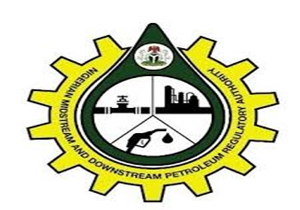The Federal Government has sought the technical support of the International Monetary Fund (IMF) to design a transparent fuel price modulation framework that will cushion domestic price shocks and strengthen Nigeria’s fiscal stability.
Permanent Secretary, Ministry of Petroleum Resources, Dr. Emeka Vitalis Obi, disclosed this in Abuja during a joint engagement between the Ministry, its regulatory agencies — the Nigerian Upstream Petroleum Regulatory Commission (NUPRC) and the Nigerian Midstream and Downstream Petroleum Regulatory Authority (NMDPRA) — and the IMF Fiscal Affairs Department (FAD) Technical Assistance Mission on Climate Policy.
Dr. Obi said the collaboration is part of ongoing efforts to build a resilient and transparent fiscal system capable of withstanding global energy market volatility while maintaining economic discipline.
“The Federal Government is seeking the continued technical support of the IMF’s Fiscal Affairs Department in designing a transparent and resilient price modulation mechanism that will help cushion domestic price shocks, insulate markets from extreme global volatility, and preserve fiscal discipline,” he stated.
He described the IMF mission as timely and strategic, aligning with government efforts to consolidate post-pandemic recovery, manage climate-related fiscal pressures, and sustain ongoing energy reforms.
Dr. Obi reaffirmed that removing the general fuel subsidy was a necessary step to restore fiscal stability and redirect public spending toward infrastructure, social welfare, and sustainable energy development.
Highlighting Nigeria’s environmental responsibility, he cited the Nigeria Gas Flare Commercialisation Programme (NGFCP) and emerging carbon-credit frameworks as part of efforts to end routine gas flaring, reduce methane emissions, and promote gas utilisation in power generation, fertilizer production, and Compressed Natural Gas (CNG) markets.
“These initiatives align with Nigeria’s Nationally Determined Contributions (NDCs) under the Paris Agreement and global ESG standards,” he said.
Dr. Obi called for sustained IMF partnership — both technical and financial — to strengthen fiscal analytics, climate policy modelling, and carbon pricing readiness.
Leader of the IMF Technical Team, Mr. Diego Mesa, commended the Ministry for providing a detailed overview of Nigeria’s energy and fiscal landscape, noting that the mission focused on fiscal reforms, sustainable development, and climate policy, with emphasis on fossil fuel and carbon taxation.
Officials of NUPRC and NMDPRA reaffirmed their commitment to eliminating gas flaring, refining tariff frameworks, and ensuring balance between investor returns and consumer protection.
Business News of Wednesday, 5 November 2025
Source: www.vanguardngr.com













